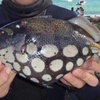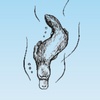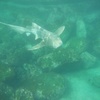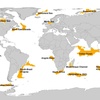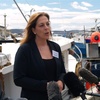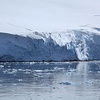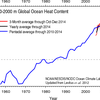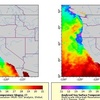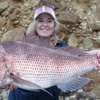
Australian fish moving south as climate changes, say researchers
Australian scientists have assessed how 35 common fish species are coping with climate change, finding that most have to deal with new conditions and many are moving towards polar waters to find suitable habitats, writes The Guardian. Research led by the University of Tasmania’s Institute for Marine and Antarctic Studies (IMAS) analysed the climate sensitivity of fish found off the south-east coast of Australia. Read the full article here.


